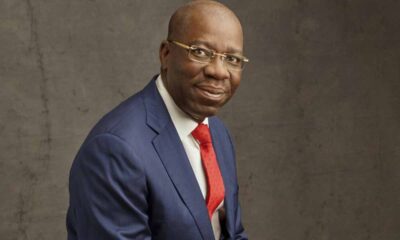- Permit: FG Audits Foreigners Working on Project Sites
The Federal Government has conducted an audit to find out the number of foreigners working on 127 works and housing project sites across the country.
It also announced that the Federal Ministry of Power, Works and Housing had inaugurated a full audit to ascertain the number of foreigners working on all project sites nationwide, beyond just the works and housing sectors.
President Muhammadu Buhari disclosed these while speaking in Abuja at the 60th Anniversary of the Nigerian Society of Engineers in preparation for the 2018 National Engineering Conference and Annual General Meeting which begins on Monday (today).
Buhari, who was represented by the Minister of Power, Works and Housing, Mr Babatunde Fashola, said, “The Executive Order Number Five issued earlier this year is one step towards ensuring that in the short term, the economic benefits of our investments in infrastructure are maximised for the benefit of Nigerians. The implementation committee of ministers set up to ensure compliance has already started work.
“Therefore, while we have taken loans from overseas to execute some of these projects, we did not sign away the rights of Nigerians to benefit from them. I am happy to inform you that the Ministry of Power, Works and Housing has conducted a snap audit of 77 works construction sites and 50 housing sites to ascertain the number of foreigners employed on those sites and whether they have work permits on the work they are undertaking.”
He added, “The report shows that first, there are 8,950 workers on those 77 works project sites, out of which 227 are foreigners and 8,723 are Nigerians. On the housing side, the inception report shows that we have 51,360 workers and no foreigner was found working on those sites.”
Buhari said foreigners must obey Nigerian laws and must obtain work permits if they must continue working in Nigeria.
He said, “But the ministry has gone beyond that; they have now commissioned a more detailed and full audit of all construction sites and we are waiting for the results of the findings. Let me declare that why the government of Nigeria welcomes foreigners and investors to our country, we expect that, like in all law abiding countries; foreigners can only work after obtaining work permits in accordance with our laws.
“This is one of the objectives of the Executive Order Number Five and in cooperation with the NSE, will be most welcome towards achieving our long term objective of delivering prosperity to the greatest number of Nigerians.”
The NSE, President, Adekunle Mokuolu, applauded Buhari for his courage in giving Nigerians the Presidential Executive Order Five.
“It is important that I mention here again that the NSE considers the Executive Order Five which is for planning and execution of projects, promotion of Nigerian content in contracts and science, engineering and technology, as a call to action for Nigerian engineers.”
Mokuolu observed that it had been an uphill task getting successive governments to understand the importance of indigenous engineering innovations to national economic and social development.
He, therefore, noted that the conference would re-emphasise, from an informed point of view, the need to prioritise rural integration in the approach to infrastructure development as a nation.

 Naira4 weeks ago
Naira4 weeks ago


 Naira4 weeks ago
Naira4 weeks ago




 Naira4 weeks ago
Naira4 weeks ago




 Naira3 weeks ago
Naira3 weeks ago
 Commodities4 weeks ago
Commodities4 weeks ago


 News4 weeks ago
News4 weeks ago
 Travel4 weeks ago
Travel4 weeks ago




 Naira3 weeks ago
Naira3 weeks ago






















